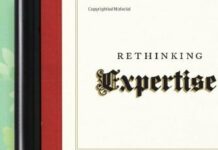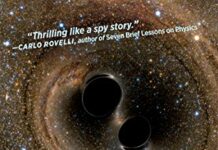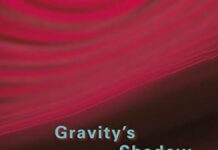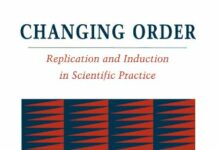
Ebook Info
- Published: 2017
- Number of pages: 193 pages
- Format: PDF
- File Size: 1.48 MB
- Authors: Harry Collins
Description
We live in times of increasing public distrust of the main institutions of modern society. Experts, including scientists, are suspected of working to hidden agendas or serving vested interests. The solution is usually seen as more public scrutiny and more control by democratic institutions – experts must be subservient to social and political life. In this book, Harry Collins and Robert Evans take a radically different view. They argue that, rather than democracies needing to be protected from science, democratic societies need to learn how to value science in this new age of uncertainty. By emphasizing that science is a moral enterprise, guided by values that should matter to all, they show how science can support democracy without destroying it and propose a new institution – The Owls – that can mediate between science and society and improve technological decision-making for the benefit of all.
User’s Reviews
Reviews from Amazon users which were colected at the time this book was published on the website:
⭐ok
⭐Harry Collins is a Research Professor in Social Sciences and Robert Evans a Professor in Sociology, both at Cardiff University and this book is a defence of what they call Wave Three of Science Studies, which aims to preserve the expertise of science and find a better way of managing the trade off with democratic accountability most notably though establishing a new institution called The Owls who can mediate between the two groups as some kind of honest broker in a highly theoretical read with noble intentions but which never really convinced me.The book is divided into three parts. In Part I Collins and Evans set out science as involving a moral choice and describe what’s meant by the Three Waves of Science Studies to support their premise that science is a moral institution. Although this is quite heavy on theory, as a newcomer to the subject I was able to follow the arguments and descriptions made but I think that it does help if you have some familiarity with the area because the authors refer to sociology writers and their positions without recounting them here.In Part II the authors set out the principles underlying what they call elective modernism and explores how that impacts on the ways scientific advice should be used in making public policy. Most notably they argue for a new institution termed The Owls whose job is to examine the content and certainty of the scientific evidence in order to ensure the best position is reflected in policy. The problem that I had with this is that there are already quasi-independent boards in UK public life (such as the Office for National Statistics) performing this function but which don’t have the impact that they should do in public life. Neither author addresses this within the piece and it’s difficult to see how their theoretical institution could perform any better without an exploration of why existing bodies aren’t able to perform that role.This problem is particularly highlighted in Part III where the authors seek to show how there’s an element of revolutionary thinking to their idea when it comes to the links between science and democracy and is made worse when you consider examples such as the MMR vaccine scandal where even the colossal weight of evidence from the medical profession as a body hasn’t been sufficient to persuade all parents to vaccinate their children.Part IV then seeks to sum up the authors’ arguments to form a manifesto for the future of science and the choices to be made.I did find this an interesting read and the authors make some pertinent points about science and its role in public policy and I was particularly drawn by their arguments about science having a moral basis. However the lack of practical examples affected my ability to believe in the arguments being advanced and some of their claims about such approaches being extended to social science (which seems to me to be far more open to individual interpretation) undermined the central planks of this book.
⭐There has been a tension for some time between the hard and ‘softer’social sciences and this book is a result of that tension, which has moved in recent times away from mere posturing to an increasing propensity of physical scientists in particular, to move into and both comment on and try to influence areas away from their field, such as politics, philosophy and social studies. This has produced mixed results- witness Stephen Hawking’s disastrously naive attempt to enter the realms of metaphysical philosophy in his ‘Grand Design’- however this book tries to stay more focused in albeit broad social and political spheres of life.Because of the huge technological successes of the past century or so, many people are prone to listen to scientists as if they are the fount of all knowledge and what Collins and Evans seem to be arguing here, is that they have as such a responsibility to use their influence with care and consideration and to understand that there are limits to the scientific method. Indeed, there is a moral and value-driven aspect to science, something that seems too easily discarded in contemporary times in the name of ‘scientific rationality.’ And so this shortish, clearly presented book attempts to tackle the current cult of science-based experts, re-introducing the need for a more holistic approach. It’s not a scientist-bashing exercise- if anything the authors hold back a little too much on criticizing the present trend of asking for a ‘scientific’ analysis of everything under the sun- and it smacks at time with it’s mediation suggestions of trying to please all the people all the time, but it is an intriguing and useful read as it charts an argument for how vital reasonable, value-based science is in the healthy functioning of a modern democracy.
⭐As far as I can gather from this somewhat weird book, a couple of sociologists want to be appointed to head a quango judging the morality and efficacy of science projects. It’s called The Owls, hence cover illustration. The bird metaphors get a little strained. Their rationale is that governments are sometimes misinformed. The thought of a Judge Dredd group vetoing research makes me shudder, whatever their examples of 2-4-5 T weedkiller or failures to combat HIV spreading in South Africa. Bad science happens, eventually opinion catches up. Sorry, no job.
⭐Unfortunately, I found this book not to be neutral, instead pushing an agenda and not actually being particularly insightful or well written, although I personally am of the opinion that democracies do need science so I was actually looking forward to reading it!
⭐First of all I should point out that it’s a very readable and accessible academic book.The authors are professors of Cardiff University.CONTENTS==========Table of ContentsPrefacePart I: IntroductionChapter 1: Science as a Moral ChoicePart II: Elective ModernismChapter 2: Choosing ScienceChapter 3: The Birds: Elective Modernism, Democracy and SciencePart III: Academic ContextChapter 4: Elective Modernism in ContextChapter 5: Institutional InnovationsPart IV: ManifestoConclusion: Elective Modernism and DemocracyTHE BOOK=========In the last 50 years there have been significant scientific and technological advances. They have had a great impact on our day to day lives, but that link between science and society/democracy have not always been good bedfellows.This book is thought-provoking book, as they submit that science is the key to achieving our democratic ideals.Some parts are weird (they over labour the owl analogies) but overall a really thought provoking book.If you’re studying social sciences this is one to consider.
Keywords
Free Download Why Democracies Need Science 1st Edition in PDF format
Why Democracies Need Science 1st Edition PDF Free Download
Download Why Democracies Need Science 1st Edition 2017 PDF Free
Why Democracies Need Science 1st Edition 2017 PDF Free Download
Download Why Democracies Need Science 1st Edition PDF
Free Download Ebook Why Democracies Need Science 1st Edition





